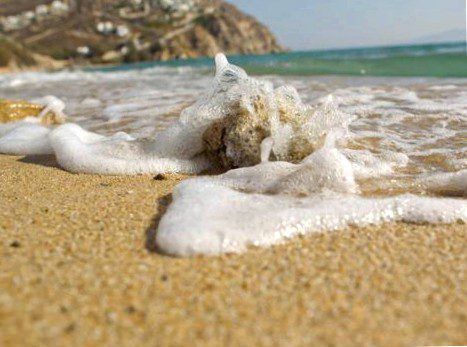
Almost everywhere, the water at the surface of the ocean is becoming warmer, more acidic and less oxygenated as a result of ongoing greenhouse gas emissions, an international team reports in the journal PLOS biology.
But the deep regions will also be affected, the productivity of the ecosystems will be reduced. The interplay of factors will alter marine food chains and ultimately affect the lives of millions of people who live by and from the sea, he said.
The scientists, led by camilo mora of the university of hawaii, had analyzed comprehensive biological and socio-economic data, taking into account current climate forecasts. They focused their work on models related to the 5. UN intergovernmental panel on climate change (IPCC) report were developed.
They assumed two emissions scenarios: a "business as usual" model in which atmospheric carbon dioxide levels rise to 900 parts per million (ppm), and a model in which CO2 emissions are drastically reduced and limited to 550 ppm.
The analysis showed that under both assumptions, almost the entire surface of the world’s oceans will undergo biogeochemical changes, with the extent of the changes varying from region to region. For example, the water in tropical regions is becoming less rapidly acidic, and in temperate zones the temperature rise is lower. Only in a very small part of the oceans, especially in the polar regions, did the water become more oxygenated and the seas more productive, the researchers write further. According to the forecasts, there will be no cooling or increase in ph anywhere.
In a second step, the researchers around mora investigated which habitats and which biodiversity hotspots will be most affected by the changes. In principle, the consequences in the deep sea would be less severe, while shallow waters – and thus coral reefs and mangroves – would be more strongly affected. Even where krill, squid, whales and seals have been common, major changes can be expected.
Humans will not be spared the consequences of change, researchers write. Between 470 and 870 million of the world’s poorest people depend on the oceans for food and income. They lived in countries where the changes were expected to be particularly severe and were therefore the most affected.
"The effects of climate change will be felt from the surface to the bottom of the sea. It’s really scary to think about how severe these impacts will be," said andrew sweetman of the international research institute of stavanger (bergen, norway), one of the study’s authors. "That’s a legacy that we as people can’t ignore."
The study confirms a recently published report by the international program on the state of the ocean (IPSO). In the study, international marine scientists call for immediate action to stop the destruction of the oceans. They also warn of the "deadly trio" of warming, acidification and oxygen depletion.
"The health of the oceans is moving on a downward spiral much faster than we thought," comments alex rogers of somverville college (oxford/ uk) on the findings published in the journal marine pollution bulletin. "We are seeing major changes that are happening faster and whose consequences are imminent."